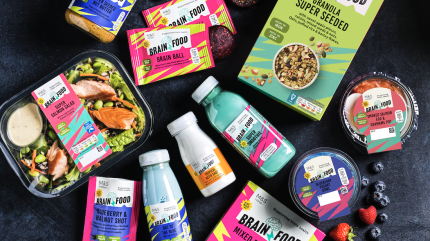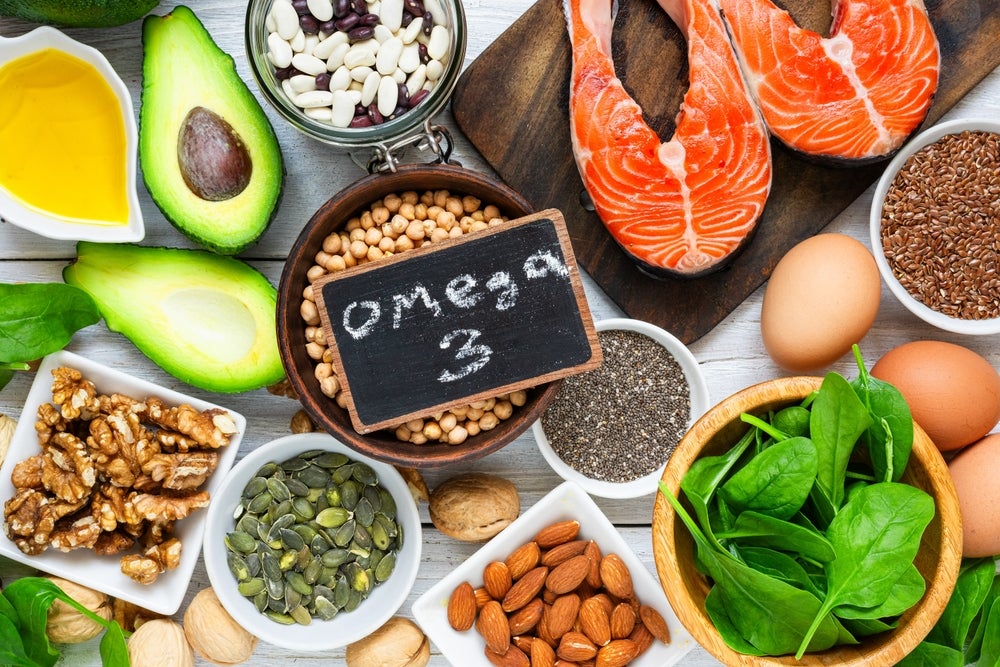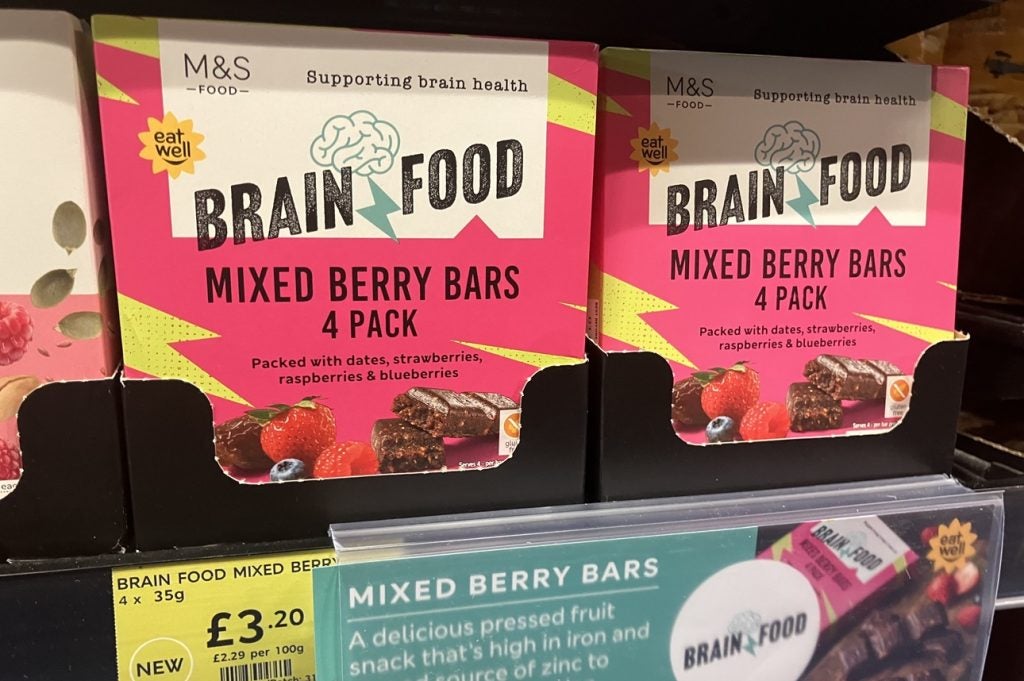
Do functional foods specifically targeted at brain or cognitive health deliver the benefits they claim and often at added expense to the consumer?
More than four decades on since the generalised functional foods term reportedly first emerged in Japan, the general conclusion is, that beyond foodstuffs containing Omega-3 fatty acids, more scientific studies, data-gathering and evidence are needed to substantiate the efficacy of such products on brain health.

Discover B2B Marketing That Performs
Combine business intelligence and editorial excellence to reach engaged professionals across 36 leading media platforms.
The term itself is misleading, as it can also include natural and nutritional foods that provide a benefit as part of a balanced and healthy diet.
According to terminology used by the Food and Agricultural Organization of the United Nations (FAO), functional foods are products that provide a “health benefit beyond basic nutrition, demonstrating specific health or medical benefits, including the prevention and treatment of disease”.
While the National Institutes of Health (NIH) echoes such a description, the US government organisation proposes an alternative descriptor for functional foods, suggesting the current term is “poorly defined”.
“Functional foods are novel foods that have been formulated so that they contain substances or live microorganisms that have a possible health-enhancing or disease-preventing value, and at a concentration that is both safe and sufficiently high to achieve the intended benefit,” the NIH advocates.

US Tariffs are shifting - will you react or anticipate?
Don’t let policy changes catch you off guard. Stay proactive with real-time data and expert analysis.
By GlobalData“Possible” is perhaps the key word here.
“The simple answer is, for some of the companies that are in this space, for some of the companies that really want to make these claims – and it’s an expensive ask – we would need to see more testing that shows some kind of conclusive result,” Renee Leber of the Institute of Food Technologists (IFT) in Chicago tells Just Food.
Leber, who is a manager of food science and technical services at the IFT, adds: “We’re not seeing conclusive results saying that this is going to be any better than following a healthy diet, and if you’re following a healthy diet, that this is going to substantially increase cognitive health.
“We’re not necessarily seeing the results out of testing, out of clinical trials, and more of those have to be done. If you’re not getting conclusive results, then it’s hard to make any kind of a claim.”
Confusion abounds
A myriad of terminologies and sometimes unfamiliar ingredients are batted around under the umbrella of functional foods, each with their own purported health benefits, and no doubt presenting confusion for consumers, let alone providing solid evidence of their effectiveness.
Nutraceuticals is a broad term used to describe a product derived from food sources with extra health benefits. And then there are antioxidants, adaptogens like mushrooms, ashwagandha, creatine, L-theanine, Sulforaphane, ginseng and ginkgo biloba, to name a few.
The more familiar Omega-3 is also referred to as DHA or docosahexaenoic acid, which can be found naturally in oily fish but also seaweed.

Commenting for this article, a spokesperson for the Food and Drug Administration in the US says nutraceuticals or functional foods are “not an FDA-defined product type”.
The regulator adds: “In general, the FDA regulates products based upon how they are intended to be used. Depending on how a nutraceutical product is marketed, it could be regulated as a dietary supplement, conventional food, drug, or other commodity.
“Regardless of how the product is marketed, the manufacturer or distributor must follow the applicable requirements.”
Leber at the IFT says tests around brain health foods have “shown some mixed results” but health claims have not been substantiated by the FDA.
Similarly, cognitive health claims around creatine and L-theanine have led to so-called cease-and-desist orders from the FDA and more recently for ginkgo biloba as well, she says.
Regulators’ stance
US medical centre Mayo Clinic describes creatine as a compound that comes from three amino acids found in the body’s muscles and brain. “Creatine supplementation might improve performance during cognitive tasks, especially in older adults,” it says.
L-theanine is also an amino acid, mainly found in green and black teas and some types of mushrooms, and is said to aid mental function. Ginkgo biloba, meanwhile, is said to have antioxidant qualities purportedly beneficial to people suffering with dementia or other brain impairments.
“If you’re saying my creatine is going to help with memory retention over time, and the FDA says you have no proof, either you have to go get proof in a clinical trial, or pull that claim off,” Leber says.
Across the pond, The European Food Safety Authority (EFSA) says its role is to “assess the scientific basis of health claims and if they can be substantiated by scientific evidence”. However, the regulator stressed rule setting and enforcement of deviations in the EU are down to the European Commission.
“We require rigorous studies before a claim can be approved. So far, many claims related to cognitive function have been rejected due to insufficient evidence,” a spokesperson for the EFSA tells Just Food.
For functional foods targeted at brain function and stress reduction, EFSA says it “found that many of these claims are not supported by adequate data”.
But, in the case of product claims it has assessed around DHA/Omega-3, it adds the fatty acids “contribute to the maintenance of normal brain function”.
“Quick fixes”
Monique Richard, an integrative and functional dietitian and nutritionist, agrees with the suppositions around functional food products geared toward cognitive health.
“There are some good studies that are very specific but we don’t have those long term, robust, large-sample studies, and so we have to exercise our critical thinking and be optimistically cautious,” Richard says.
“It’s complicated and very complex in terms of so much red tape, and research is so costly and takes so long that sometimes it doesn’t work in our favour. We just don’t know enough but we’re getting there.”
Both Richard and Leber agree that it’s not a case of one size fits all for functional foods aimed at improving brain health, which makes studies into the efficacy of such products more difficult, and even more difficult to prove.
There’s lots of companies that are just using the buzzwords and marketing and capitalising on that
Monique Richard, dietitian and nutritionist
Some people may already have a balanced and healthy diet, others may not, whether that’s by consumption choices or a lack of resources. Consumers may also be looking for a fix to differing ailments or health conditions, while age, wellbeing and lifestyle can play a part, too. Interactions with other drugs or medications they are taking also need to be considered.
“I think that companies and manufacturers have become really savvy to stay abreast with what the consumers are looking for, and consumers are looking to feel better. Oftentimes, they’re looking for quick fixes and promises,” Richard suggests.
“They just aren’t educated about the possible pitfalls, lack of evidence and a lot of them are so desperate they don’t really care. They’re willing to try something for whatever reason.
“There’s lots of companies that are just using the buzzwords and marketing and capitalising on that.”
Cost equation
Those comments suggest there’s a risk of consumers being ripped off or even hoodwinked into buying functional food products when the substantive evidence of the health benefits is not there, or not backed by scientific studies.
“Brain health and preventative actions to reduce risk of dementia are big business at the moment as we all seek to live healthier for longer,” says Satu Jackson, CEO of the British Association for Nutrition and Lifestyle Medicine or BANT.
“Naturally, this has generated plenty of new products and ‘functional foods’ with a variety of claims. We agree that more research is needed on functional foods, while also recognising how difficult it is to separate what component/s of functional food provides the health benefits.”
While functional or fortified foods are marketed around particular health benefits – perceived, proven or otherwise – there is also a risk those same benefits could be masked by other components of the ingredients profile that might not be deemed as being so healthy.
That’s a concern shared by Jackson, who suggests functional foods could be at danger of falling into the ultra-processed bracket.
“Many modern foods are ultra-processed, they lack nutrients and manufacturers ‘enrich’ or ‘fortify’ them to add nutrients which were either eliminated during the processing or the food never had them in the first place.
“There is plenty of research about ultra-processed foods and the harm they cause and we would need to understand the composition of any functional foods and how they are manufactured.”
Leber infers to a “silver bullet” in terms of consumer wants, needs, costs and appropriate health solutions.
“If you happen to have a silver bullet, people are willing to pay a lot of money to have some level of confidence that this is going to help them,” she says. “If there is a silver bullet, which I don’t believe there is, the closest thing we have is Omega-3s.”
Omega-3
Omega-3 is perhaps the most familiar reference to most of us even though there may be uncertainty as to what it actually is and the health benefits it may have or is perceived to have.
Cod liver oil being a case in point. As well as Omega-3 fatty acids it contains the vitamins A and D and is said to offer a host of health benefits: the brain, joints and bones, the immune system, heart and eyes.
UK retailer Marks and Spencer has recently taken up the Omega-3 baton with the launch of its ‘Brain Food’ range, developed in consultation with the British Nutrition Foundation.
M&S said it “selected six key brain-supporting nutrients due to evidence of low intakes and/or low status among the UK population”. Omega 3 (DHA), iron, iodine, folate, zinc and vitamin B12.

At “least” two of the six ingredients are featured in each of the products, which include a ‘super seeded’ nut butter, a ‘super smoothie’, kefir shots and mixed berry snack bars.
“A balanced, healthy and varied diet is key to ensure you are fuelling your brain with all of these important nutrients,” M&S said.
Omega-3s are essentially fatty acids or polyunsaturated fatty acids. According to NIS, some studies show that a diet high in Omega-3 can help reduce the “risk” of cognitive decline such as with dementia, of which the most common is Alzheimer’s disease.
Leber at the IFT says a lot more research has been carried out in terms of the Omega-3 benefits on brain health, such as memory retention and cognitive response times but “nothing else is showing a conclusive answer”.
Despite the lack of conclusive evidence to date, she suggests there is a long-term trend in functional foods targeted at brain health and that will be consumer driven. But research, case studies and regulatory approvals also take time to deliver solid proof of concept.
“Now that we’re seeing an uptick in things like dementia-related outcomes, an uptick in certain kinds of memory concerns in older age, I think it’s more top of mind to people.
“I think one of the best things we can do is start to educate the public about what does it mean. You say antioxidants are anti-inflammatory and that helps brain health, and hence, later in life, you’ll have higher memory retention.
“That’s not as simple as it as it seems when you see it on a package, so let’s dig into what this means.”





